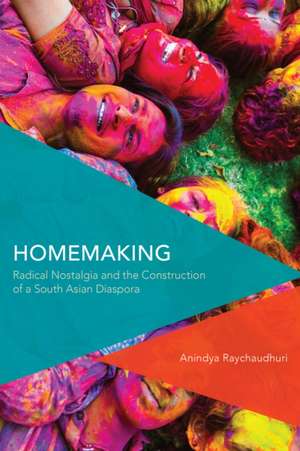POSTCOLONIAL NOSTALGIA AMP THE CCB: Critical Perspectives on Theory, Culture and Politics
Autor Anindya Raychaudhurien Limba Engleză Hardback – 15 sep 2018
Din seria Critical Perspectives on Theory, Culture and Politics
-
 Preț: 309.18 lei
Preț: 309.18 lei - 25%
 Preț: 815.18 lei
Preț: 815.18 lei -
 Preț: 433.87 lei
Preț: 433.87 lei -
 Preț: 430.01 lei
Preț: 430.01 lei -
 Preț: 351.17 lei
Preț: 351.17 lei -
 Preț: 450.23 lei
Preț: 450.23 lei -
 Preț: 413.47 lei
Preț: 413.47 lei -
 Preț: 430.22 lei
Preț: 430.22 lei - 27%
 Preț: 901.73 lei
Preț: 901.73 lei -
 Preț: 435.23 lei
Preț: 435.23 lei - 27%
 Preț: 935.71 lei
Preț: 935.71 lei -
 Preț: 409.83 lei
Preț: 409.83 lei -
 Preț: 409.61 lei
Preț: 409.61 lei - 27%
 Preț: 914.28 lei
Preț: 914.28 lei - 27%
 Preț: 912.05 lei
Preț: 912.05 lei - 27%
 Preț: 874.73 lei
Preț: 874.73 lei -
 Preț: 293.16 lei
Preț: 293.16 lei -
 Preț: 421.37 lei
Preț: 421.37 lei
Preț: 784.89 lei
Preț vechi: 1075.19 lei
-27% Nou
Puncte Express: 1177
Preț estimativ în valută:
150.21€ • 156.24$ • 124.00£
150.21€ • 156.24$ • 124.00£
Carte tipărită la comandă
Livrare economică 15-29 aprilie
Preluare comenzi: 021 569.72.76
Specificații
ISBN-13: 9781783482627
ISBN-10: 1783482621
Pagini: 224
Dimensiuni: 152 x 229 x 21 mm
Greutate: 0.52 kg
Editura: Rowman & Littlefield International
Seria Critical Perspectives on Theory, Culture and Politics
ISBN-10: 1783482621
Pagini: 224
Dimensiuni: 152 x 229 x 21 mm
Greutate: 0.52 kg
Editura: Rowman & Littlefield International
Seria Critical Perspectives on Theory, Culture and Politics
Cuprins
Descriere
Explores the impact of nostalgia on the construction of individual and collective identity for diasporic South-Asians in the UK and US. It argues that in the postcolonial context the affect produced by this nostalgia can have radical potential as a form of resistance.
